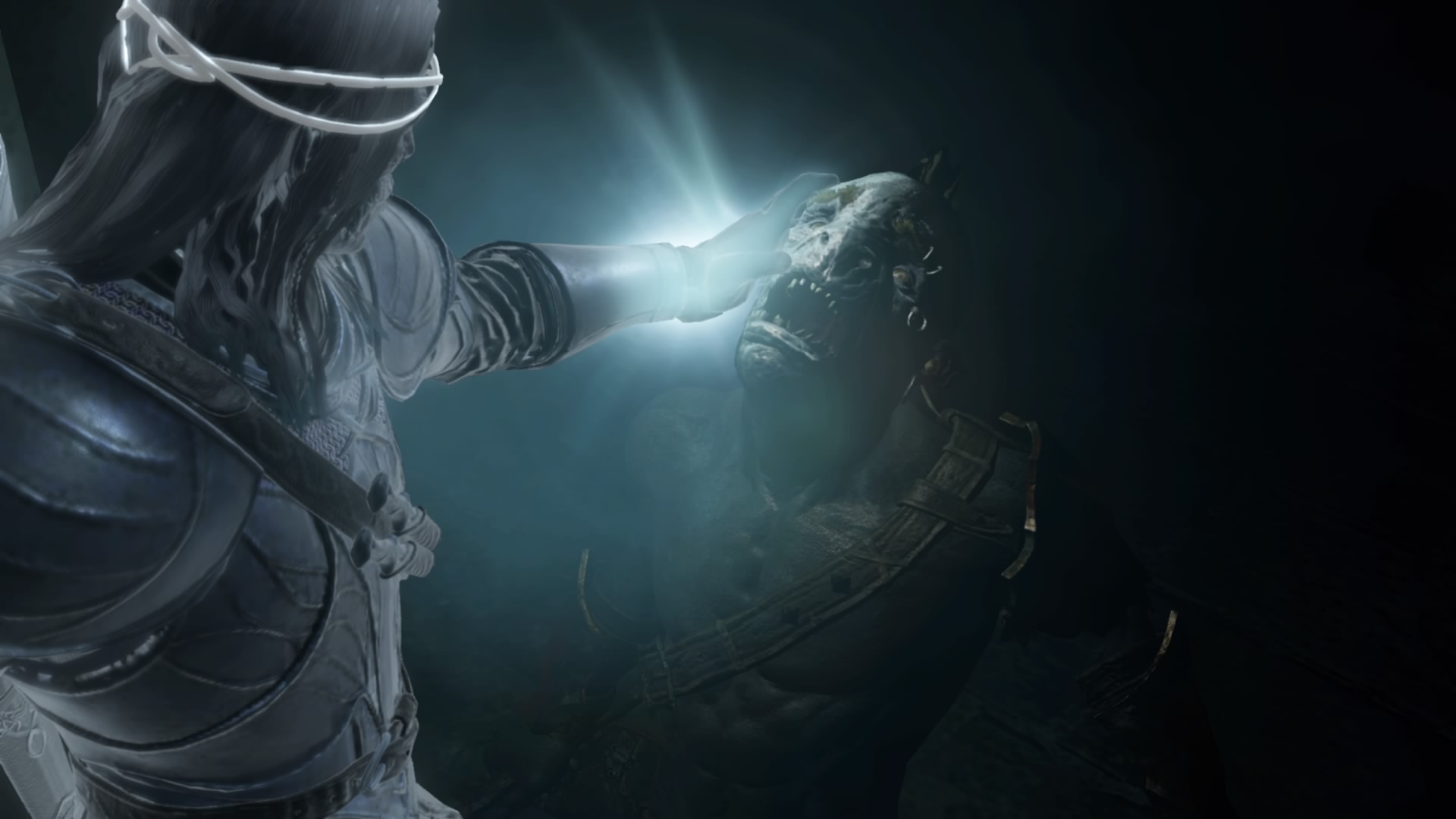
There’s nothing like a bit of triple-A shenanigans to stir the pot of games industry discourse. The latest in a storied history of controversies in the big-budget gaming space stems from a Warner Bros.’ patent of a mechanic from Monolith Productions’ 2014 critical darling, Middle-Earth: Shadow of Mordor.
The game’s publisher, Warner Bros. Interactive Entertainment has finally secured the patent on Middle-Earth’s Nemesis system. This gameplay feature was a key selling point in both games in the series and was a key factor in distinguishing them from other open-world romps in the triple-A space. Now that the patent is under lock and key, other developers likely won’t be able to put their own spin on the Nemesis system without scrutiny from Warner Bros. itself.
The patent has been received largely negatively on social media, with many trusted industry voices weighing in to express their displeasure at the announcement, such as narrative designer Cat Manning who tweeted: “...the patent is so broad that I'm still worried that it's a license to stop ANY similar work from being developed!"
This move from Warner Bros. feels antithetical to gameplay innovation. Not only does the patent discourage developers from making use of their own style of Nemesis system, it also stops them from making it even better.
What is the Nemesis system?
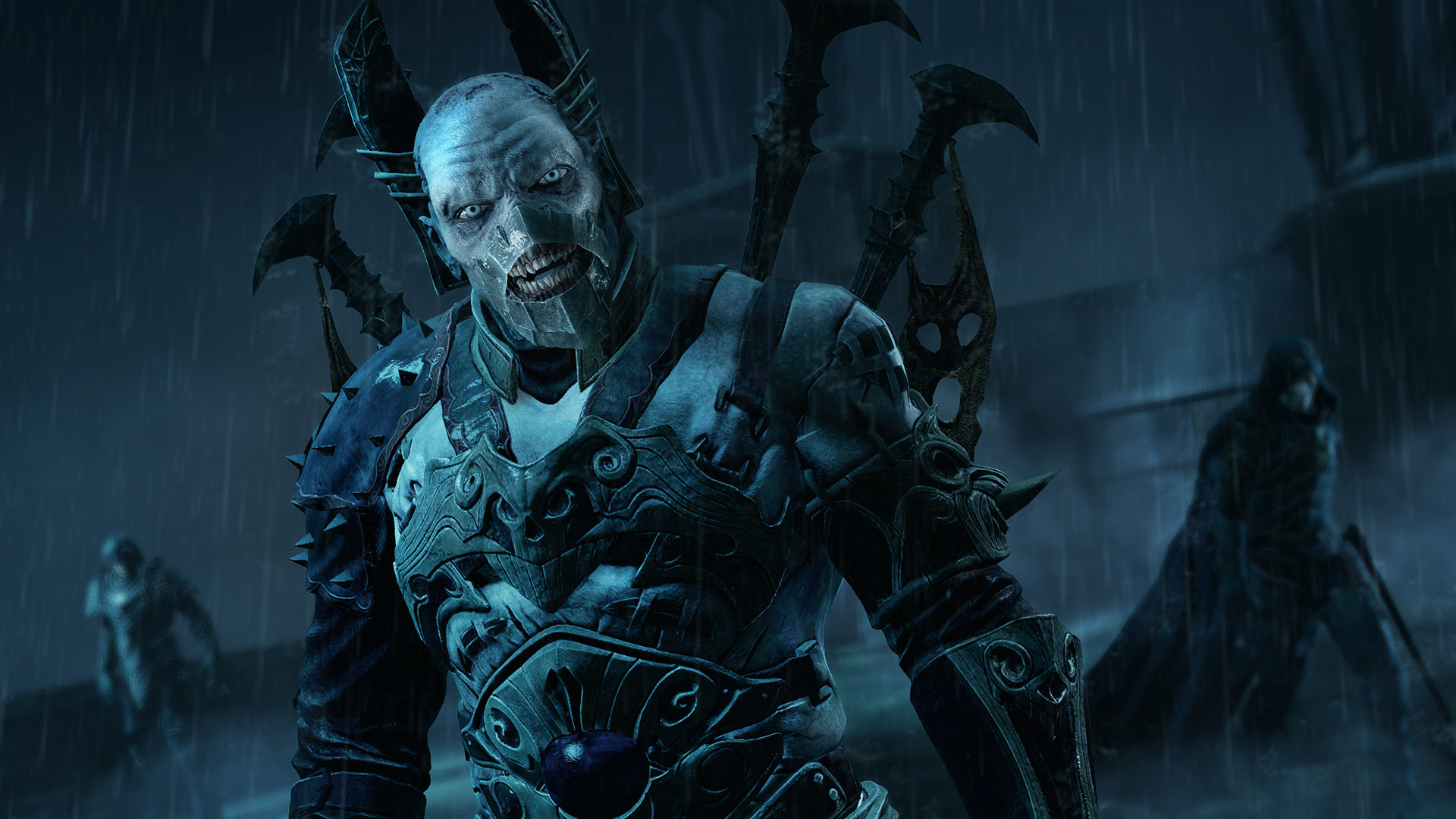
In case you’re unfamiliar with the Nemesis system and what it achieves in-game, here’s a brief rundown. Middle-Earth: Shadow of Mordor and its sequel, Shadow of War, tasks the player with dismantling an army of Orcs, one general at a time. Killing the lower-ranking enemies will have a trickle-up effect, eventually granting the player the chance to face larger threats.
It’s not the hierarchy that makes the Nemesis system stand out from the crowd, however. Every single Orc in the rankings has their own suite of voiced dialog, personalities, combat styles, strengths and weaknesses.
Orcs bested by the player are removed from the system, usually replaced by another ambitious upstart. Those same Orcs can even return, wanting revenge. On the other hand, any Orc lucky enough to kill you will get promoted, increasing their strength and allowing them to roam around with an even larger posse of lesser creatures.
Get daily insight, inspiration and deals in your inbox
Sign up for breaking news, reviews, opinion, top tech deals, and more.
The dynamism of the Nemesis system was incredibly unique for its time, and resulted in a game that continues to be worth playing to this day. Although it looks like any mechanic inspired by it will now be swiftly halted by the legal might of Warner Bros.
What impact will the Nemesis System patent have?
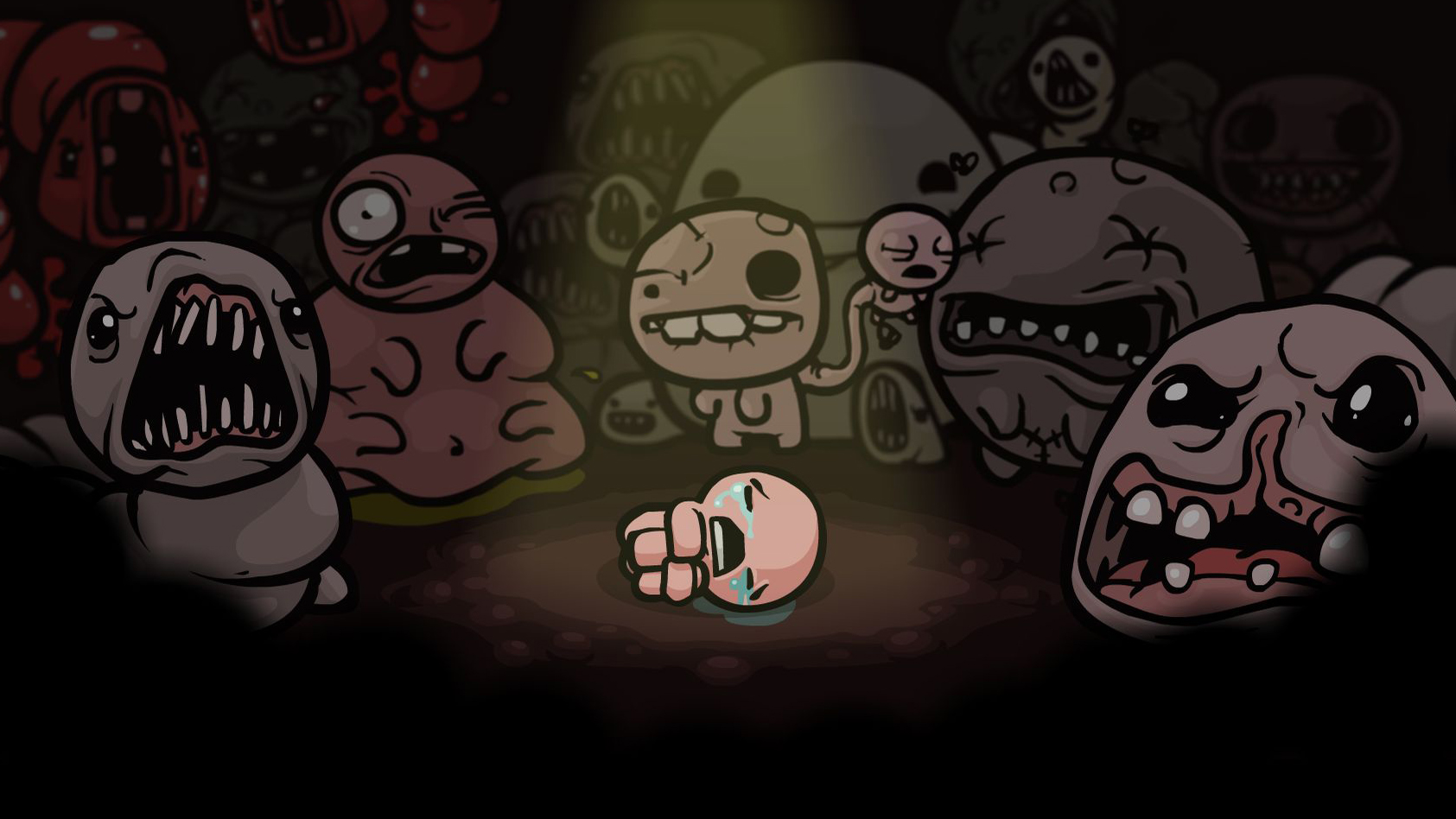
The long-lasting effect of the patent is that it will likely discourage other developers from adopting features inspired by the Nemesis system. Warner Bros. will now be able to legally challenge any company they deem to be riffing on the mechanic. It’s sad because it feels like this should be a decision that lies with Monolith Productions, the developer of the games, which did most of the heavy lifting, rather than their publishers.
"Suffice to say, gaming as we know it simply wouldn’t be as broad or enjoyable if developers big and small were barred from iterating on established features and tropes. It’s a crucial practice that leads to more polished, enjoyable games."
Warner Bros. has been actively chasing for the patent’s approval since March 2016. Until now, its attempts to do so were unsuccessful, something that I wish could’ve stayed that way. Still, nothing ventured is nothing gained, and Warner Bros. has cynically used that axiom to now stifle innovation.
Let’s look at how bad this is for indie developers, as an example. Publishers don’t typically go this far to protect individual systems of gameplay. Indie darlings like Salt & Sanctuary or Hollow Knight certainly didn’t come under any legal fire for adopting mechanics similar to ones found in the Souls series - such as dropping a recoverable currency upon death.
It’s important to hammer home just how vital iteration is to the games industry. There are so many memorable gaming experiences we just wouldn’t have if Warner Bros.’ strategy was the norm. Not just that, we’d be locked out of entire subgenres of games.
Just look at the countless rogue-lite, permadeath-focused games inspired by The Binding of Isaac, like Enter the Gungeon, Slay the Spire and even Hades to name but a few. Isaac itself took cues from retro titles like Rogue and the original Legend of Zelda, showing that even the most influential games were taking notes during development.
Even popular series that helped build entire genres weren’t afraid to borrow concepts from elsewhere. Dragon Quest and the Japanese RPG space as we know it might not exist without direct inspiration from early western RPGs like Wizardry and Ultima. The entire fighting game genre wouldn’t be the same without the key mechanics established by Street Fighter 2, all the way back in 1991.
Suffice to say, gaming as we know it simply wouldn’t be as broad or enjoyable if developers big and small were barred from iterating on established features and tropes. It’s a crucial practice that leads to more polished, enjoyable games. Warner Bros. clamping down on one of its best systems ultimately lessens the avenues for other developers to explore.
Patent pending
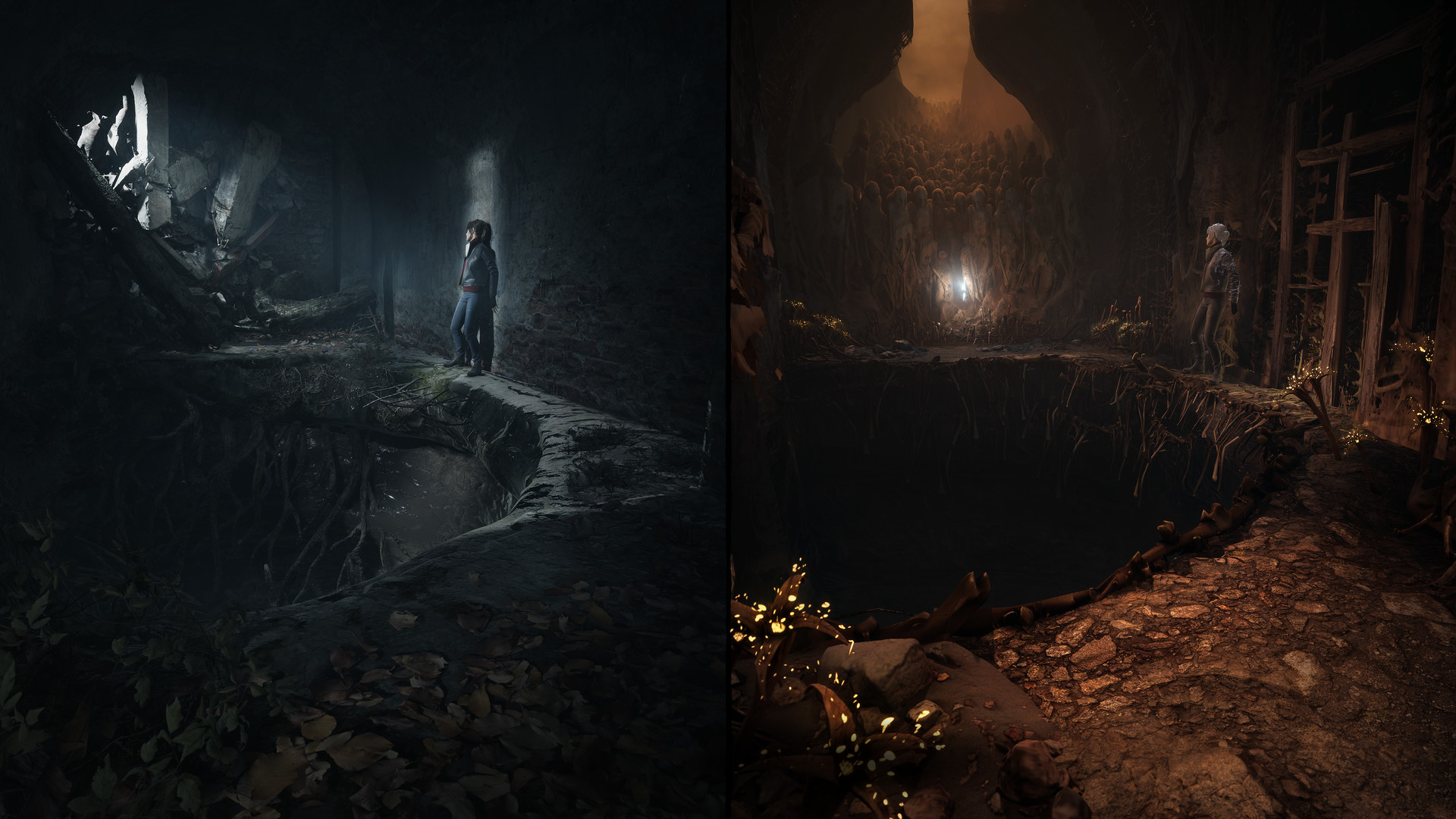
But Warner Bros isn’t the only culprit and the Nemesis system patent isn’t an isolated incident. Other developers have tried patenting their own gameplay features in the past. Remember the time BioWare put a patent on its Mass Effect dialog wheel? Even more recently than that, Bloober Team filed a patent for a system featured in its recent horror game, The Medium, in which the screen is split in two to explore sections of what it calls “dual-reality gameplay.”
"Warner Bros. needs to see that iteration is not stealing - it’s invigorating."
The difference here is that BioWare seems to take a more lax approach to enforcing its patent with an iron fist. Dialog wheels have appeared in other RPGs, such as cult hit Kingdoms of Amalur: Reckoning. In Bloober Team’s case, it’s a much smaller developer, and it may have filed the patent to confidently give its future games a distinct flavor with its dual-screen system.
If Warner Bros. does decide to enforce its patent for the Nemesis system, this sets a bad precedent for the future. Other large publishers could follow suit, deciding that a particular system in their games should be kept under lock and key as well. “Well, Warner Bros. did it,” they might say, “what’s to stop us from locking down our gameplay systems as well?”
This discouraging of iteration and innovation by Warner Bros. might also lead to a lack of competition, which is always welcome in the games industry. Developers often like to put forward gameplay systems as selling points. For me, the Nemesis system certainly was a selling point for Shadow of Mordor when it first came out, and it’s the kind of thing I would love to see done better in other games.
On the flipside, such innovation would be great for Warner Bros. themselves. Observing how other game makers are riffing on the Nemesis system could provide valuable insight for its future games, look at what worked and what didn’t in its own efforts, and prevent the system from becoming stale from repeated use. Warner Bros. needs to see that iteration is not stealing - it’s invigorating.
Devs rise up
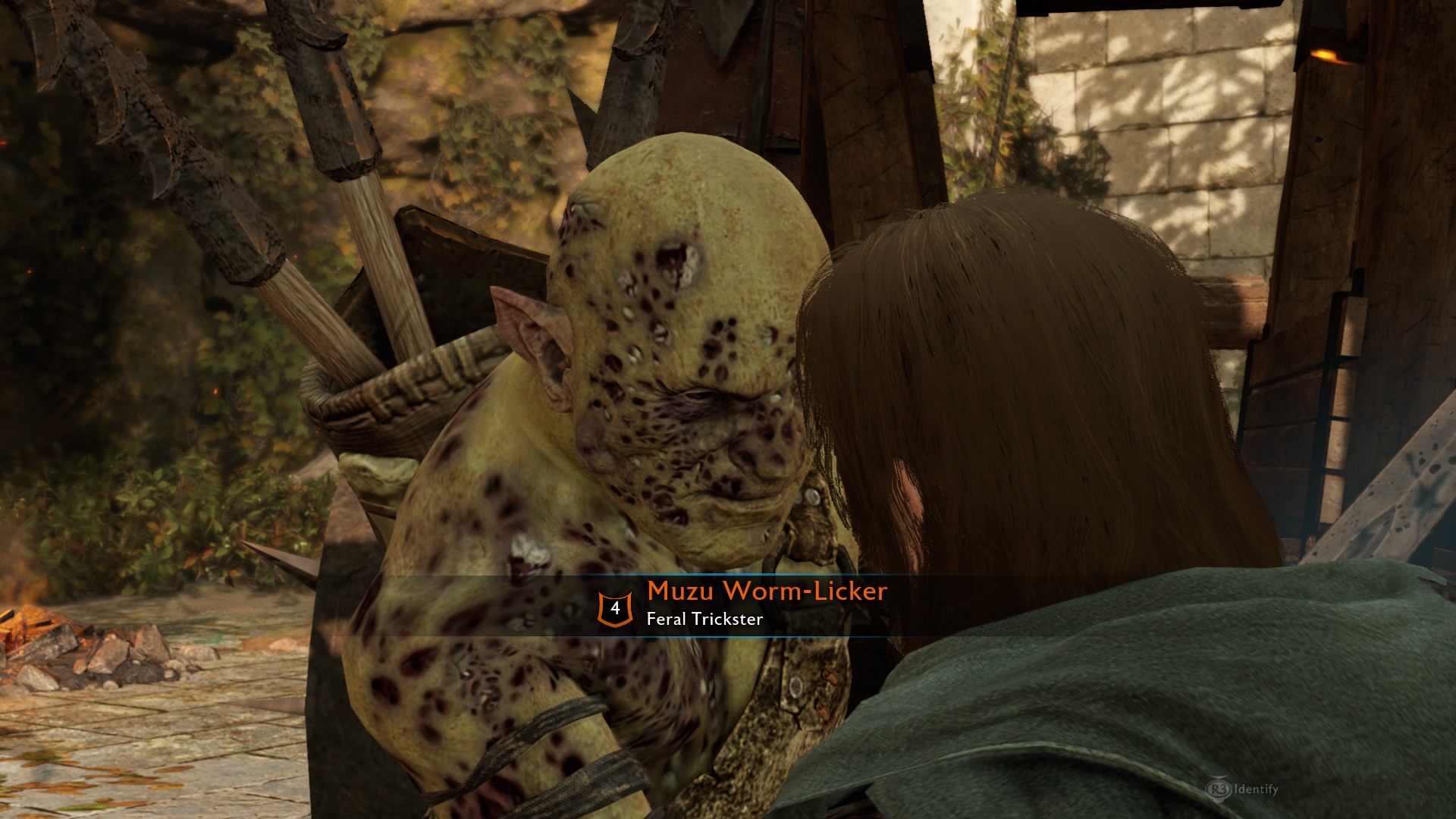
It’s important to note begrudgingly that, yes, Warner Bros. is well within its right to patent the Nemesis system. It owns the property, and thus whatever it says goes. There may be some silver linings to salvage out of this, though.
Could Warner Bros. make the most of the patent with other games under its umbrella? It’s definitely possible. A take on the Nemesis system could work well for a future Rocksteady-developed Batman title. Avalanche Software’s upcoming Hogwarts Legacy is also rumored to feature a variant of the Nemesis system.
For the industry at large, though, it heavily discourages creatives from exploring avenues in which the Nemesis system could be improved on. Ultimately, the patent is a deterrent, and will likely be used as an exercise in finger-wagging from WB towards other devs.
A patent isn’t the same as a copyright, and it doesn’t guarantee that WB will win any legal challenges should other developers wish to implement similar mechanics in their games.
Though, it’s possible we’ll see WB get trigger happy with even the slightest similarity to the Nemesis system. All we can do is hope that they won’t, but it’s a dark day in the games industry whenever a multi-billion dollar corporation seeks to bar smaller creatives from expanding on a system they helped bring to light.
Warner Bros. should be celebrating developers inspired by the Nemesis system. After all, it published a game that featured a system that many believed was fantastic, and worth iterating on. By publishing the Middle-Earth games, Warner Bros. helped nurture that system and put it in the spotlight. Instead, it picked up its ball and stormed off home, seemingly eager to keep its toys to itself.
- Middle-earth Shadow Of War review: bold, brilliant and brutal

Rhys is TRG's Hardware Editor, and has been part of the TechRadar team for more than two years. Particularly passionate about high-quality third-party controllers and headsets, as well as the latest and greatest in fight sticks and VR, Rhys strives to provide easy-to-read, informative coverage on gaming hardware of all kinds. As for the games themselves, Rhys is especially keen on fighting and racing games, as well as soulslikes and RPGs.